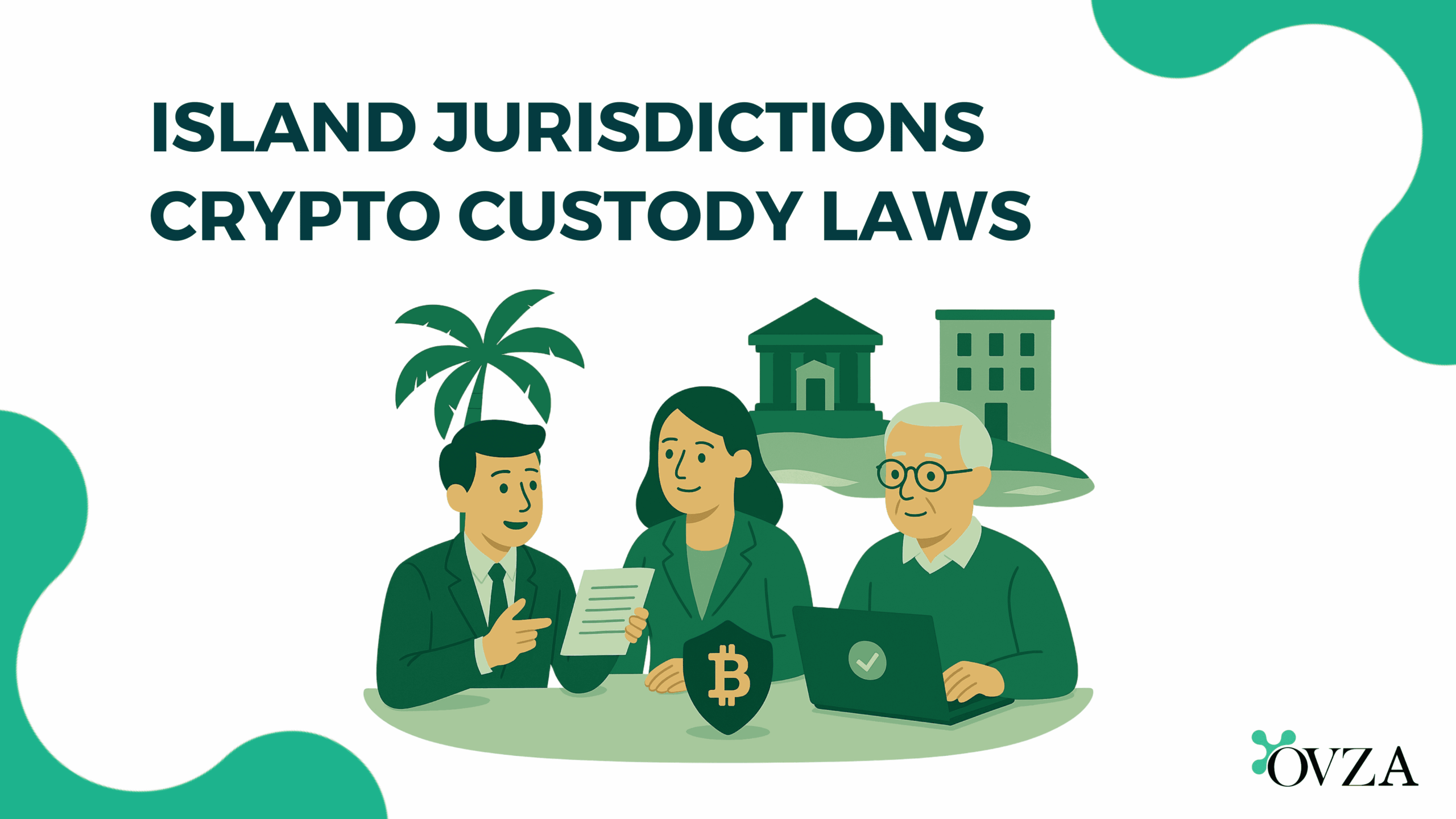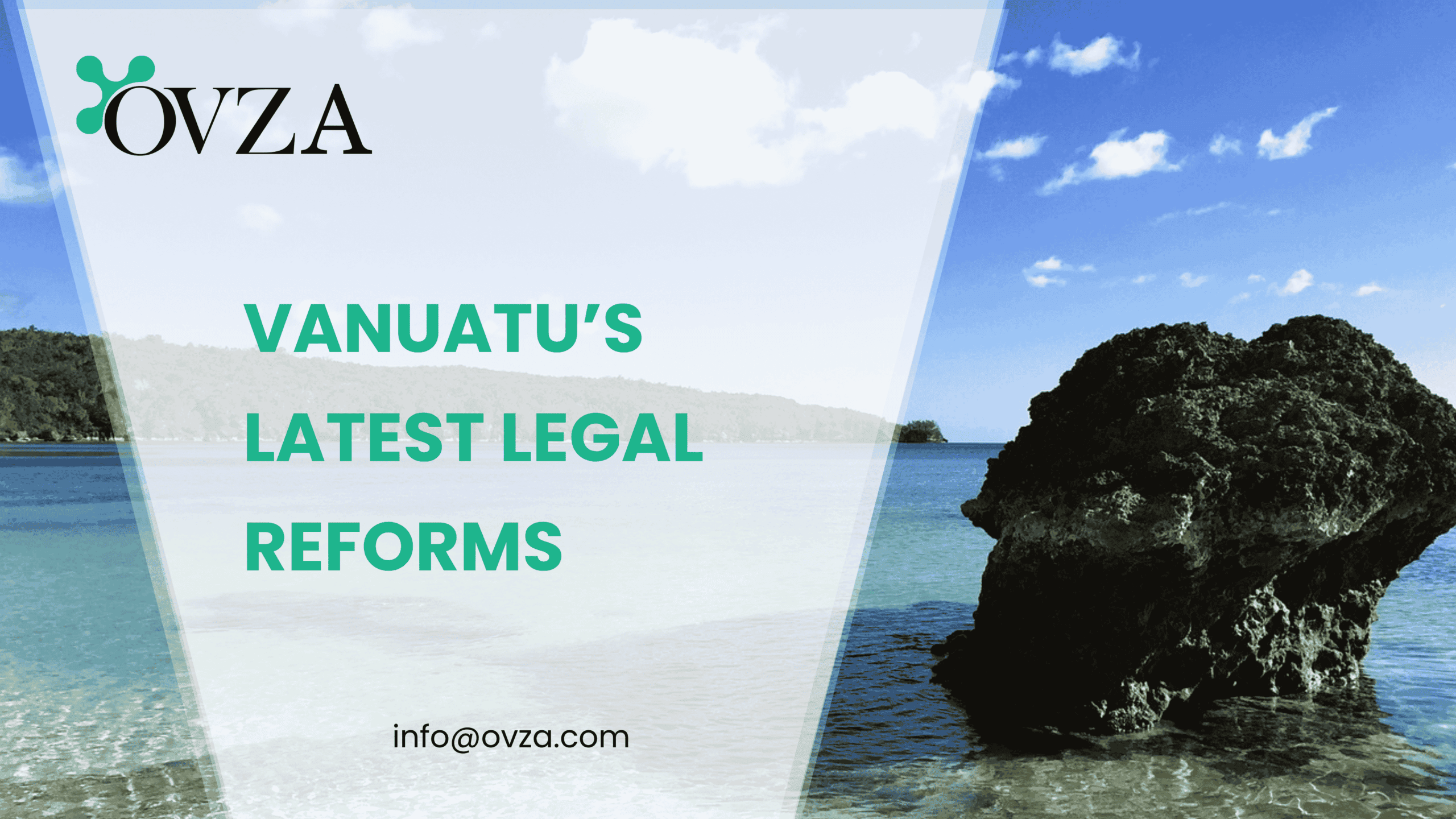Comparative overview of crypto custody laws in Belize, Seychelles, Nevis, BVI & Anguilla under financial services and AML frameworks. The regulation of digital assets, particularly with regard to crypto custody laws, remains a fragmented and evolving field. For those operating or incorporating in offshore jurisdictions, understanding the legal position on custodial services for cryptocurrency is essential. Among the most commonly used jurisdictions are the five countries noted for cost-effective incorporation and relative legal flexibility—Belize, Seychelles, Nevis, the British Virgin Islands (BVI), and Anguilla. Each of these island nations has adopted a different approach to the regulation of cryptocurrency custody, with varying degrees of legislative clarity and institutional oversight.
- Legal Overview in Five Offshore Hubs
- Belize: Emerging Recognition Without Explicit Crypto Custody Licensing
- Seychelles: No Formal Crypto Custody Regime but Functional Legal Pathways
- Nevis: Asset Protection Orientation with Indirect Crypto Custody Applications
- Anguilla: Legal Innovation Without Formal Custody Mandates
- Comparative Legal Summary: Custody Regulation Across Island Jurisdictions
- Conclusion
Legal Overview in Five Offshore Hubs
The legal treatment of crypto custody laws in offshore jurisdictions typically intersects with existing financial services legislation, including laws governing trust companies, money transmission, securities, and fiduciary services. In most cases, these jurisdictions have not created bespoke custody regulations specifically for crypto-assets, but they have provided enough legal infrastructure or regulatory forbearance to accommodate such services under traditional legal categories.
Belize: Emerging Recognition Without Explicit Crypto Custody Licensing
Belize remains one of the more flexible offshore jurisdictions when it comes to digital asset operations. As of mid-2025, there is no legislation directly governing cryptocurrency custody. However, companies seeking to provide custodial services in Belize often do so under the broader scope of financial services regulation, particularly under the International Financial Services Commission Act and the Money Laundering and Terrorism (Prevention) Act.
The Belize International Financial Services Commission (IFSC) does not yet offer a specific license for crypto custody, but it has signaled openness to licensing digital asset service providers under existing frameworks, especially when dealing with wallet services or token issuance. Notably, the IFSC requires licensees to comply with AML/CFT standards, as outlined in Belize’s National AML/CFT Policy. As a result, while there is no express prohibition on custodial services for crypto, legal practitioners must examine each custodial activity to determine whether it triggers existing licensing obligations.
Moreover, local legal advisors typically recommend that crypto custody providers consider the classification of their business model under the IFSC’s “payment processing services” or “money transmission” licenses. These categories may become legally relevant if the business involves control or transfer of client funds.
Seychelles: No Formal Crypto Custody Regime but Functional Legal Pathways
Seychelles, long recognized for its robust offshore legislation and adaptability to modern financial instruments, does not currently offer a dedicated license for crypto custody services. The jurisdiction relies heavily on the structure of its Securities Act 2007, Financial Institutions Act 2004, and the Anti-Money Laundering and Countering the Financing of Terrorism Act 2020 to assess whether a given crypto custody activity falls within existing licensing requirements.
The Seychelles Financial Services Authority (FSA) has taken a cautious yet permissive approach toward digital assets. While it does not regulate cryptocurrencies directly, it assesses whether a service constitutes a regulated activity based on its function rather than its form. This includes custody arrangements involving keys, tokens, or client funds. For instance, a service that holds private keys on behalf of users may fall under fiduciary or trust business depending on the degree of control exercised.
Recent legal commentary has pointed out that crypto custody, especially when performed by a Seychelles International Business Company (IBC), could fall outside local regulatory jurisdiction if conducted entirely offshore with no local activity. Nevertheless, under the international standards adopted by the Seychelles government, especially after its 2022 FATF evaluation, service providers are expected to apply appropriate due diligence and AML practices.
Nevis: Asset Protection Orientation with Indirect Crypto Custody Applications
The island of Nevis, part of the Federation of St. Kitts and Nevis, has gained international attention for its powerful asset protection legislation. While Nevis does not currently issue specific crypto custody licenses, it remains a favorable jurisdiction for digital asset holding structures, including trusts and limited liability companies (LLCs). The absence of express custody regulation means legal classification depends on the nature of the service and its interaction with existing financial services laws, notably the Nevis International Banking Ordinance and the Anti-Money Laundering Regulations.
Entities providing crypto custody services through Nevis typically do so under trust or management structures, avoiding classification as a financial institution so long as they do not accept deposits or conduct traditional banking activities. The Nevis International Exempt Trust Ordinance provides a legal basis for structuring custody relationships that separate beneficial ownership from control, a key element in the custody model for digital assets.
Practitioners must exercise care in distinguishing passive holding from active fiduciary control. Where a Nevis LLC is formed to act as custodian of digital assets, and especially if it holds keys or operates smart contract-based wallets, local counsel may advise registration under applicable financial services statutes. However, there is no express requirement under Nevis law to license such companies unless they solicit business from Nevis residents or handle fiat transfers.
This legal gray zone has permitted a range of fintech structures to emerge, including token vaults and offshore DAO custody wrappers.
British Virgin Islands (BVI): Functional Regulation Through VASP and Securities Law
Unlike the jurisdictions previously discussed, the British Virgin Islands have taken more definitive steps to regulate virtual asset service providers (VASPs), including those offering custodial services. In 2022, the BVI enacted the Virtual Assets Service Providers Act, 2022 (VASP Act), which introduced a formal registration regime for crypto service providers.
Under the VASP Act, entities engaged in safeguarding virtual assets or instruments enabling control over such assets must register with the BVI Financial Services Commission (FSC). Crypto custody is explicitly covered under the definition of a “virtual assets service.” The law also sets out AML/CFT obligations, governance requirements, and fit-and-proper tests for operators.
Custody providers operating from the BVI must maintain robust internal controls, conduct regular audits, and establish risk management systems in line with FSC guidelines. A notable element of BVI’s approach is that it balances innovation with risk containment, allowing entities to offer wallet, cold storage, and private key management services under a clear regulatory framework.
This legal clarity, combined with the flexibility of BVI Business Companies (BCs), makes the jurisdiction one of the more structured environments for crypto custody within the offshore sphere.
Anguilla: Legal Innovation Without Formal Custody Mandates
Anguilla has adopted a distinct legislative path in the crypto domain, introducing one of the earliest digital asset regulatory regimes through the Anguilla Utility Token Offering Act (AUTA), 2018. However, AUTA deals exclusively with utility token offerings and does not address custody or exchange services. As such, custody remains unregulated in the narrow sense, though AML laws and fiduciary duty principles still apply.
Under the broader Financial Services Commission Act and Proceeds of Crime Act, any custodial arrangement involving client property is subject to due diligence obligations. While Anguilla does not yet issue crypto custody licenses, its laws allow financial services entities to operate in a compliant structure if adequate AML/KYC procedures are followed.
Legal scholars have debated whether a wallet provider in Anguilla holding private keys on behalf of clients constitutes a “trustee” or “agent” under common law. Given Anguilla’s similarity to UK-derived legal systems, these relationships are often analyzed under traditional equity doctrines. Where a company manages crypto on behalf of clients, especially under a segregated asset model, contractual clarity is critical. There are no legislative barriers to operating a custody business. Anguilla’s crypto-friendly environment, low-cost setup, and common law framework continue to attract fintech projects.
Comparative Legal Summary: Custody Regulation Across Island Jurisdictions
The divergence in crypto custody laws across these five jurisdictions reflects the broader global uncertainty surrounding digital asset regulation. Each jurisdiction—Belize, Seychelles, Nevis, BVI, and Anguilla—has adopted a unique legal posture, shaped by its regulatory culture, international obligations, and appetite for fintech development.
Belize and Seychelles rely on functional regulation. In both, custody is not a specifically licensed activity, but may still fall under existing financial services or fiduciary legislation if the provider exerts control over client assets. In these jurisdictions, compliance is measured by adherence to AML/CFT requirements rather than licensing categories, allowing flexibility but also requiring careful legal interpretation.
Nevis continues to serve primarily as a private asset protection hub. Its LLCs and trusts may hold cryptocurrencies and provide custody-like functions, particularly under structures that avoid classification as a financial institution. The lack of a licensing framework does not preclude custody, but rather places responsibility on legal design and jurisdictional risk assessment.
The BVI is the only jurisdiction in this group with a modern, dedicated legal framework for virtual asset service providers. The VASP Act 2022 mandates registration and operational compliance for custody services, aligning BVI law with Financial Action Task Force (FATF) standards. BVI’s legal framework reduces regulatory ambiguity and offers a concrete pathway for compliant digital asset custody providers. In practice, this has made the BVI one of the few offshore jurisdictions where formal custody providers can operate under clear statutory authority.
Anguilla remains unique in that it has pioneered token issuance legislation through the AUTA 2018, but has left custody unregulated. This legal silence presents both opportunity and risk. Crypto custody providers may operate in Anguilla without license if they do not fall under existing fiduciary or financial services categories, but must maintain robust compliance programs and legal clarity in client contracts.
In comparing these five legal environments, one finds a gradient of regulation. From the structured approach of the BVI, to Anguilla’s laissez-faire regime, each jurisdiction presents a different balance of legal certainty, flexibility, and regulatory risk. Investors and corporate planners must consider not only the statutory environment but also judicial precedents, enforceability of contracts, and recognition of digital property rights. This is especially relevant when custody involves smart contracts, multi-signature arrangements, or third-party access protocols.
Conclusion
The treatment of crypto custody laws in these jurisdictions remains in flux. Future developments may include FATF-driven licensing mandates, new categories of digital fiduciary services, or judicial rulings that reinterpret existing statutes. Until then, legal analysis must be based on careful reading of financial services laws, AML/CFT obligations, and the precise legal characterization of custody activities in each jurisdiction.
For practitioners and entities engaging in cross-border structuring of digital asset businesses, these island jurisdictions continue to offer practical and legal advantages. Whether seeking flexibility in Belize, regulatory certainty in BVI, or asset protection in Nevis, offshore custody models will continue to evolve under the influence of both domestic law and international compliance standards.
Disclaimer: The information provided on this website is intended for general reference and educational purposes only. While OVZA makes every effort to ensure accuracy and timeliness, the content should not be considered legal, financial, or tax advice.












